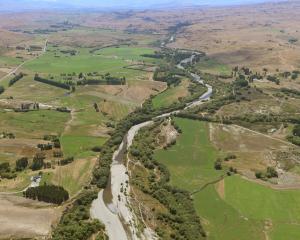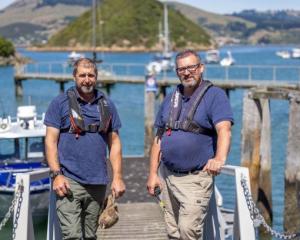The forum, a group representing iwi and key freshwater stakeholders, last week released its second report to the Government, calling for a national framework within which regional councils would work with communities and iwi to set freshwater objectives.
Forum chairman Alastair Bisley said communities should collaborate to develop specific water quality objectives for each catchment and identify local solutions to achieve them.
"National bottom lines will be based on the mana and ecological health of our waterways and human health needs. This will provide for fishing, recreation and food gathering at a basic level across all catchments."
A third report to the Government was due later this year on ways of managing within limits including allocation.
Mr McRae said the report did not add anything to conclusions the forum originally raised.
Issues raised regarding setting limits, standards and targets and working with communities, had already been addressed by the regional council through its implementation of water plan changes for quality and quantity as well as its minimum flow work.
Waterways were incredibly diversified throughout New Zealand and even in Otago so a national standard for all would be difficult unless a "default" setting was allowed for differing catchments.
"One size does not fit all even in Otago."
Green Party water spokeswoman Eugenie Sage said the forum's recommendations, if implemented, could deliver real and lasting solutions.
"Leaving it to regional councils with no clear national standards would delay action. It would mean further declines in water quality and river flows, leaving the taxpayer with a bigger bill to clean up the mess," Ms Sage said.
Primary Industries Minister David Carter and Environment Minister Amy Adams said there was plenty to consider in the report, including how the recommendations fitted within the wider work the Government is doing to reform the resource management system.
They would now carefully consider the report, and also looked forward to receiving the Land and Water Forum's third report later in the year.
"The Government will then be in a position to develop durable policies on freshwater management, based on the complete package of recommendations," the ministers sayWater New Zealand's chief executive Murray Gibb said the innovative solution proposed by the forum was to sort out differences before rules are written.
"Before rules for water are drawn up, collaborative processes between potentially competing and conflicting interests are recommended. This should sort out differences between parties at the front end of planning processes."
At present draft water plans were written and then subjected to consultation and notification.
If there was no agreement it could end up in the Environment or High court.
"Currently, water plans can take up to 12 years or more to be put in place or changed. That's way too long for effective ... decision making," Mr Gibb said.












